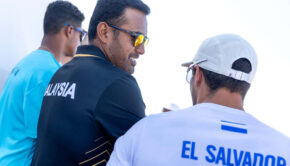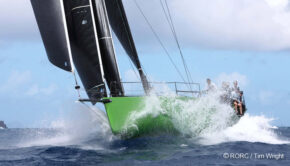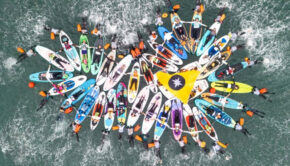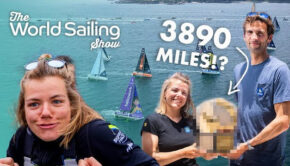COMMENTARY: Olympics, ISAF, Sailing World Cup, and Medal Races
Published on May 2nd, 2013
By Paul Heineken:
I believe that the fundamental assumptions behind the Olympic event format changes must be examined, rather than the “tweaks”. Regarding the comments in Scuttlebutt 3829…
Scuttlebutt Editor: The mission for ISAF is to better model the sailing events after other Olympic events, wherein the final race determines the medals.
Is this a reasonable assumption for a sport that has always rewarded consistency in a variety of conditions? The marathon isn’t decided by stopping after 26 miles, waiting for everyone to get together again, adjusting a small handicap, and then rewarding a 385 yard sprint. Likewise other sports like golf and the Tour de France build tension due to the duration, variety of conditions, and fans following the competitor’s personalities.
Scuttlebutt Editor: However, even with the Medal Race being so heavily weighted, there still have been instances when the gold medal was decided beforehand. So ISAF is seeking to tweak the format again, in hopes of solidifying the crescendo of the final day. The Sailing World Cup events have been testing various formats, but not every change is well received.
Is the cart driving the horse? Perceived lack of spectator appeal may be in the minds of the IOC, but ISAF is responsible for the sport. Why must ISAF respond to what it thinks the IOC wants, thereby punishing sailors and events for the 4 intervening years? If these changes take place, the Olympics—a single event every 4 years—will become a very short regatta that heavily favors the final race/s in unpredictable conditions, for some classes in an arena. Is that something that should drive the world of sailing?
Gary Bodie: The proposal for 2016 Olympics Games is to have six races, with the top ten advancing to the Medal Race day with two non-discardable double-point races. Call it 6+2, instead of the 10+1 format used at the 2008 and 2012 Games.
It is not 6+2. It is scored as 6 preliminary races minus one throw-out, followed by two double scored non-throw-out medal races. Therefore it is scored 5+4, with the medal scores all happening on a short course in a short time on the last day under who knows what conditions. Again, the assumption that “crescendo” is needed rather than excellent competition is driving this issue.
Gary Bodie: So, the real questions are: How do you feel about 6+2, and if 6+2 is adopted for the Olympics, would you prefer that the format for the SWC events is as similar to the Olympics as possible?
6+2 is a mischaracterization! And no, the SWC events should not mimic this flawed model. Sailors and those who follow sailing will be put off by not rewarding consistent excellence. It will encourage team racing in the heavily scored medal races. It isn’t fair to sailors. Period!
Editor’s note: If Paul’s last name seems familiar, it is because he is the father of the reigning Kiteboard Men’s and Women’s Course World Champions, and the US Rolex Yachtsman of the Year.








 We’ll keep your information safe.
We’ll keep your information safe.